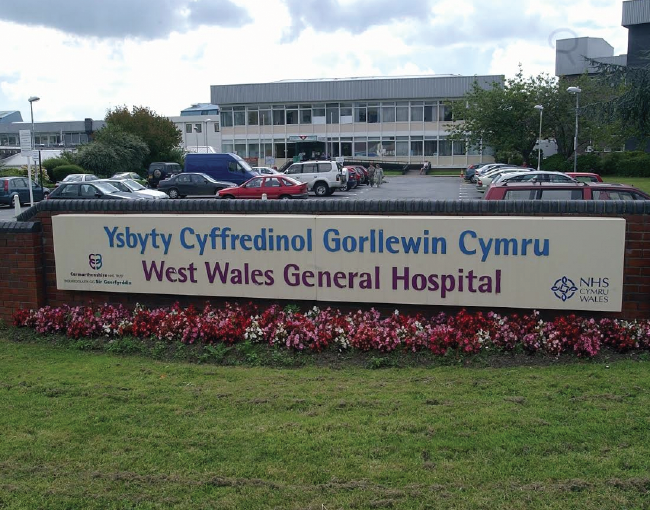
AS COUNCILS across Wales face unprecedented downward pressures on their budgets, more and more of them are looking towards third sector providers (usually charities or trusts) to take on responsibilities normally provided by councils themselves.
There is, however, a significant fear that the lack of clear oversight and governance of projects is leading to what amounts to grant farming by organisations who are only notionally independent third sector bodies.
The Herald has previously exposed the way in which millions of pounds of European money was squandered on the Coastal Care programme that delivered very few measurable benefits in return for £51.7m, including the revelation WHOLE COASTAL project had delivered full-time employment to – at most – 37 of those supported by June 2011, almost two thirds of the way through the project’s four and a half year existence.
USE AND ABUSE OF PUBLIC MONEY
In the case of Coastal, there was strong evidence that at least one Council (Carmarthenshire) had creamed off some of the European funds to provide statutory services covered by its Revenue Grant from the Welsh Government.
Also in Carmarthenshire, an inquiry into the shambolic administration of the Supporting People Programme, where the Council worked hand in glove with third sector service providers, led to a finding that there were “inadequate controls, a high risk of not meeting objectives and a high risk of fraud, negligence, loss and damage to reputation”.
The Authority’s Financial Procedure Rules had not been complied with and in particular, monthly payments to providers had been paid in advance without any authorisation – advance payments are not permitted without prior approval.
Documentation to support spending was insufficient and money was being transferred to in-house service provision without any documentation to prove that it was either eligible or met the grant criteria. Payments to providers were also being made which lacked supporting documentation.
Out of 154 Supporting People contracts only ten were current and properly signed by a representative of the Council.
But the application of public money to third sector organisations, delivering what would otherwise be publicly accountable functions is not confined to Carmarthenshire.
SUPPORTING PEOPLE IN CEREDIGION AND PEMBROKESHIRE
Cymdeithas Gofal is taking over many of the functions of the former Ceredigion Care Society and claims to be operating in Carmarthenshire, Pembrokeshire, Ceredigion and Powys.
Cymdeithas Gofal owns, or leases, 26 Cambrian Street (a shelter) and 21 Terrace Road, Aberystwyth.
Jacothenorth.net reports that of Cymdeithas Gofal’s income of £1,152,457 for the year ending March 31, 2015, Cymdeithas Gofal obtains almost £725,000 from grants made to it by third parties. Of that figure, over £650,000 comes from the Welsh Government, Ceredigion County Council (administering funds on the Welsh Government’s behalf) and other public sources.
Of the remaining £428,000, just over £295,000 is obtained from rents receivable and further £57,000 from management fees.
In the same period, Pembrokeshire Care Society, based in Haverfordwest, received £308,279 direct from the Supporting People Programme, whereas the charity’s main other income derived from the operation of Pathway Lettings, a social lettings agency which is also supported by Welsh Government funding. That income amounted to in excess of £220,000 for the period ending March 31, 2015.
In the cases of both Cymdeithas Gofal and Pembrokeshire Care Society over half of all expenditure was on salaries.
There is no suggestion that either Cymdeithas Gofal or Pembrokeshire Care Society are parties to the sort of public funding shambles that has bedevilled Carmarthenshire County Council’s past administration of Supporting People funds. Neither is there any suggestion of wrongdoing or inflation of figures to obtain greater sums in public funding than would otherwise be available.
One issue that is clear, is that the bodies in receipt of poorly-administered public money in Carmarthenshire, and the apparently well-run Cymdeithas Gofal and Pembrokeshire Care Society, are not directly accountable to the public for the expenditure of public money.
WHEN IS A CHARITY NOT A CHARITY?
In the broader picture, the UK Government’s attempt to prevent charities in receipt of public funding from funding political activities has been presented as an attempt by central government to silence dissent. However, the key issue seems to be more that large charities are in receipt of £10 billion of public money from HM Treasury to enable them to carry out their functions.
That money is in addition to whatever European funding, local authority funding, and indirect public funding via quangos and the National Lottery that charities receive.
Kid’s Company, which closed last year, has been in and out of the headlines following the revelation that the charity effectively went bust on an annual basis and used government grants as its cash flow. It received taxpayer money with no proper oversight and folded like a deckchair when that funding was withdrawn.
The relationship between public funding and charities’ activities is problematic: the question arises as to how much money is devoted to boxticking compliance to obtain public funding and how much is devoted to delivering a charity’s charitable objectives. Moreover, a further issue arises as to the steps government can take to recoup public money misspent by a charity or otherwise not used for the purposes for which it was contributed from the public purse.
A National Audit Office investigation in 2007 revealed that several large charities received more public money than some government departments. Of the £218m income of Action for Children, almost £200m came through different public funding streams. In 2013/14, the NAO reported that of MENCAP’s total income of £201.2m, all but £13.2m came from the taxpayer one way or another.
Most small, local charities make a difference to the communities they service without recourse to public funds. They make a difference by delivering real improvements for the communities they serve. But questions remain as to why so much public money is handed over to large national charities who remain unaccountable to the electorate who increasingly pay for them. Like it or not.

















Add Comment